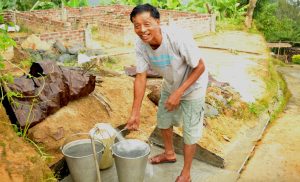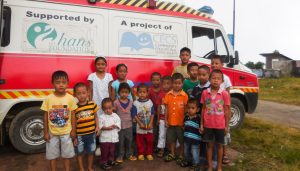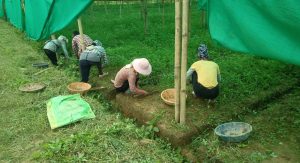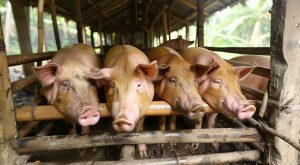In India, there are many areas that are predominantly tribal and where the landlocked is hilly, it becomes difficult to reach those areas to provide essential health services. The population residing in those areas lack basic health facilities as it is difficult to travel far to reach the health centres, for seeking health care services. Despite making significant strides in the field of information technology and being touted as the upcoming superpower in the modern world, the grave reality is that the country is still lagging behind in the social sectors and health is still a ‘privilege’ and not a right for millions of its citizens.
The pitiable narrative is the same in the context of Nagaland, thus, creating a disparity in availing quality health care at low cost. Hence, in order to reach out and cater the basic health requirements of the people in inaccessible villages, CECS with support from ‘The Hans Foundation’ has launched the Mobile Medical Unit as one of its flagship project. The objective is to provide accessible, affordable and accountable quality health services to the poorest households in the villages. Currently the MMU project caters to two districts of Nagaland, namely Mokokchung and Longleng covering 15 villages, 4565 households and reaching out to 27511 populations. The primary focuses of the project are women & child, pregnant women, adult and adolescent girls and elderly people. The project however, covers all sections of the people especially the marginalized sections of the society who cannot afford modern medical facilities.
The MMU service is aimed at overcoming the problem in the health care sector in rural areas and to provide comprehensive health care facilities to the people at their doorsteps. The MMU Team not only provides access to basic health care services, but also provides essential knowledge and information about the various pertaining health issues which are avoidable and preventable through change of lifestyle, eating habits and timely treatment. In order to improve delivery of health care services in rural community, CECS has trained Health Volunteers in the villages where the projects run, to be proficient in proper patient care, management of first aid kits, use of stethoscope etc.
Mobile Medical Unit provides primary health care services for common diseases including communicable and non-communicable diseases, RCH services, carry out screening activities and provide referral linkage to appropriate higher faculties/hospitals. The service provided is to ensure an effective mechanism to prevent and promote outpatient curative cure. The service also caters to cases needing acute medical care on the day the MMU reaches the site, such cases are provided of the care needed and the patient’s referral is organized. Appropriate care is taken to ensure that no conflicts of interest or pecuniary gain in the ways referrals are made. The MMU provides point of care diagnostics such as blood glucose, pregnancy testing, urine microscopy, albumin and sugar, Hb – hemoglobin, Hypertension, Diabetes, vision testing, HIV & AIDS and undertake follow-up checks during monthly visits, including providing patients requiring drugs with a monthly supply. The MMU Team holds timely IEC (Information, Education and Communication) sessions with the patients, community, leaders and other stakeholders on a range of health topics. The IEC sessions covers on improved preventive and promotive behaviours for maternal and child health, communicable diseases, including various vector borne diseases, educate the community on lifestyle changes, the need for screening for NCDs (Non-communicable Diseases), and early recognition and appropriate referral. The MMU service ensures that it is up-to-date health service provider and as of now it is one of the best health care provider within its operational radius meeting the technical and service quality standards. Every patient is treated with respect and dignity irrespective of economic, cultural or social status. All health data of the patients are kept confidential and their privacy is a priority and is ensured during examination and procedures. The MMU assures a continuity of care with a tentative date of next visit and chronic patients on regular long term medications are able to collect their monthly medications from MMU. Additional visits depend upon local conditions such as weather, roads, access conditions, terrain, etc. depending on the distances, the MMU Team make up to one visit a day to distant villages travelling from 2- 5 hours. For shorter distance, additional villages are covered but these are planned according to the average number of patients’ turn up. One of the salient features is the regularity, with every village being visited once in each month or twice for some villages. The MMU team works six days in a week and in certain weeks even Sunday is a working day. A weekly off is used for maintenance of vehicles, refilling supplies and entry of data, etc.
The MMU is actually serving a need and is able to provide services for a larger number of people or a comprehensive care for a population who would otherwise not receive such care.






